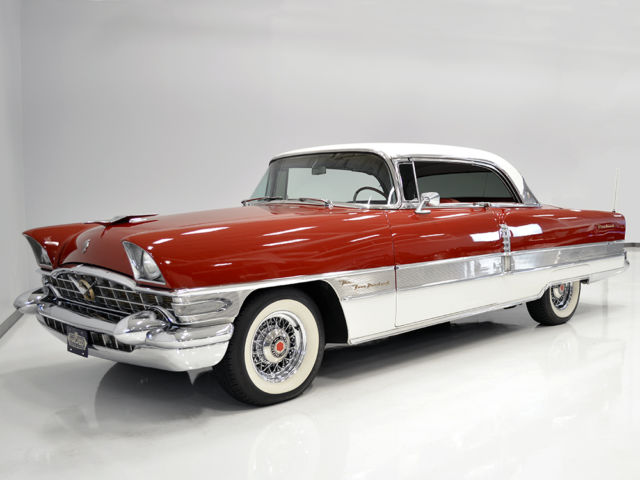400 Hardtop. Loaded, everything works, drives well, impressive '50s cruiser
- Make: Packard
- SubModel: 400
- Type: Coupe
- Year: 1956
- Mileage: 14,488
- VIN: 5687-1486
- Color: Red
- Number of cylinders: 8
- Power options: Air Conditioning
- Fuel: Gasoline
- Transmission: Automatic
- Interior color: Red
- Vehicle Title: Clear
- Interested?
1956 Packard 400 Description
I guess Packard engineers and designers couldn't read the writing on the wall in 1956--the end was nigh but they built cars like this 1956 400. Actually, make that "The Four Hundred," although I don't know how to write that in a sentence properly, but that's what it says on the deck lid. At any rate, The Four Hundred was essentially a hardtop Caribbean, Packard's top-of-the-line model and loaded with every bit of tech the sinking automaker could imagine, from cold A/C to the unusual self-leveling torsion bar suspension. I should probably tell you that this car looks better in photos than it actually is, but that doesn't mean it's a bad car. Quite the contrary, as everything works: A/C, windows, seat, radio, clock, and the aforementioned suspension. Every time I get in, I find something else that surprises or delights me, making it easy to overlook a few cosmetic flaws. Those flaws include chrome and anodized trim that's probably original, not restored, some marks in the red paint that look like bad prep, not subsequent damage--almost like there's some residue from masking tape that they just painted over. On the other hand, I can see no trace of rust, the panels fit together extremely well, and have I mentioned how much presence this car has? One, it's positively HUGE, even sitting next to a 1953 Cadillac and a 1960 Ford Sunliner, and two, the flashy two-tone paint and beautiful trim that bisects the body makes it look far more expensive than it is. It's definitely high-visibility fun.
Open the door and the first thing you'll notice are neat little courtesy lights built into the exterior trim, another of those surprising details. The interior was most likely reupholstered at some point, but the brocade fabric and leather trim looks authentic; it's just too new-looking to be original, right? The carpets have definitely been replaced and they're protected by a set of Packard floor mats that look cheesy to me, but there they are. The dash and gauges are original, so there's evidence of age visible throughout, but all the gauges work except the fuel gauge and I'm hoping the sending unit I ordered is the cure. The machine-finished instrument panel looks great and I love the pushbutton transmission, which works like it should with no issues. As I mentioned, everything works: the windows go up and down easily, the seat powers back and forth, the clock ticks away, and the radio pulls in stations loud and clear thanks to the twin antennas out back. The car appears to have factory A/C, but it's been superseded by an under-dash unit that's obviously quite a bit more modern than 1956, and it blows ice cold thanks to some upgrades working behind the scenes. Seat belts were added at some point, which is always nice, and the gigantic trunk is finished with matching red carpets and a full-sized spare.
This sucker is also a runner. Packard punched their OHV V8 to 374 cubic inches in 1956, and with a 4-barrel carburetor, it's making a rather serious 290 horsepower and a very stout 405 pounds of torque. It's got its work cut out for it, because this sucker is heavy, but it doesn't seem to matter--it's quite a bit faster than the two '53 Cadillacs sitting in the shop next to it. It always starts easily and idles well and it's got HUGE torque, which is evident from the moment you fire it up. The engine bay is neatly detailed, if not show-worthy. There's copper paint on the engine itself, a big AC air cleaner that's ubiquitous in cars of the '50s, and a modern compressor for the A/C system. There's also power steering and power brakes, plus a pair of high-powered electric fans hidden behind the grille to ensure cold air flowing over the A/C condenser all the time. It's also been upgraded to an alternator, but it's one of those cool units that looks like a generator, which I really like! The Ultra-Matic transmission, as I said, works like it should and shifts smoothly on the road, and with 3.54 gears, this car will run at modern highway speeds without any issues. The torsion bar suspension actually works well at keeping this big boat on a surprisingly level keel (look the system up, it's fascinating), and it just glides down the road regardless of the surface. Chrome wire wheels are always great on a big '50s luxury yacht and they're wrapped in good-looking 235/75/15 wide whitewall radials that are the best possible choice for driving.
Prices for these cars are all over the map. They're probably insanely expensive to restore, but the public doesn't seem to love them like they love, say, a Coupe DeVille. So it's somewhere in-between. It's purely driver-grade, so don't expect trophies, but you should expect a lot of attention wherever you go, because everyone seems to want to talk about The Four Hundred.
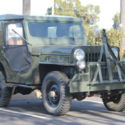 ONE OF A KIND 1953 WILLYS JEEP, EVERYTHING WORKS! DRIVES LIKE CHAMP! NO RESERVE
ONE OF A KIND 1953 WILLYS JEEP, EVERYTHING WORKS! DRIVES LIKE CHAMP! NO RESERVE
Mileage: 39,000
 one owner survivor, runs & drives fine. Easy cruiser, lowrider or ratrod. Dodge
one owner survivor, runs & drives fine. Easy cruiser, lowrider or ratrod. Dodge
Mileage: 43,760
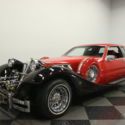 ONLY 9K ACT MILES, CLEAN HISTORY, 5.0 V8, LOADED, DRIVES LIKE NEW, SUPER CLEAN!!
ONLY 9K ACT MILES, CLEAN HISTORY, 5.0 V8, LOADED, DRIVES LIKE NEW, SUPER CLEAN!!
Mileage: 9,436
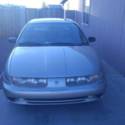 Great shape, everything works
Great shape, everything works
Mileage: 123,000
 Dumptruck works great. Cool vintage truck
Dumptruck works great. Cool vintage truck
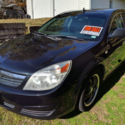 2008 Saturn Aura XE 2.4L 4cyl WORKS GREAT- NEEDS NOTHING!
2008 Saturn Aura XE 2.4L 4cyl WORKS GREAT- NEEDS NOTHING!
Mileage: 130,965
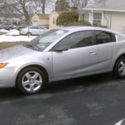 Saturn ion Looks, Runs and Drive GREAT, NO Service Light, Everything Works NO RE
Saturn ion Looks, Runs and Drive GREAT, NO Service Light, Everything Works NO RE
Mileage: 145,000
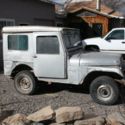 1955 Willys Jeep CJ5 with Koenig Iron Works hard top,12,000 miles,1 owner
1955 Willys Jeep CJ5 with Koenig Iron Works hard top,12,000 miles,1 owner
Mileage: 12,580
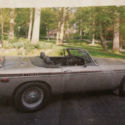 1977 MGB New Wiring,Carburetor,Fuel Pump,Nice Wire Wheels,Everything Works
1977 MGB New Wiring,Carburetor,Fuel Pump,Nice Wire Wheels,Everything Works
Mileage: 99,000
 THIS TRUCK RUNS GOOD 4 WHEEL DRIVE WORKS AS IT SHOULD THE 304 V8 RUNS STRONG
THIS TRUCK RUNS GOOD 4 WHEEL DRIVE WORKS AS IT SHOULD THE 304 V8 RUNS STRONG
Mileage: 119,000
